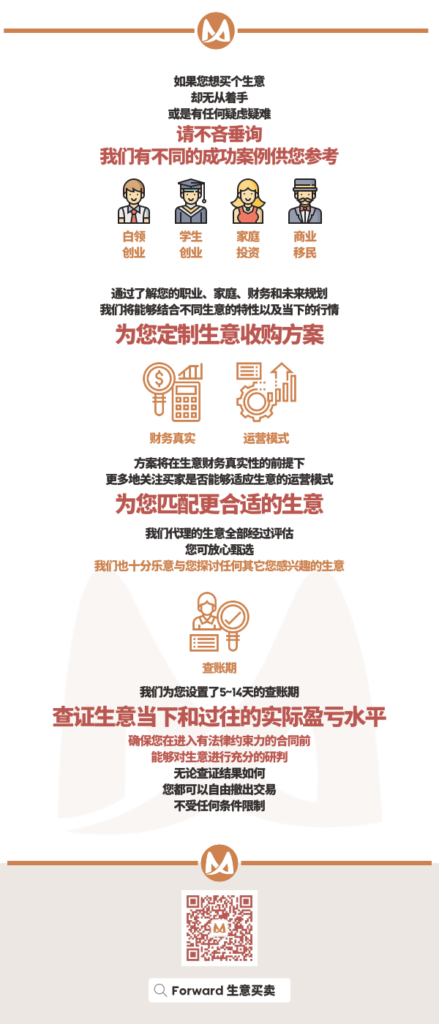It’s worth noting the growing trend among 188A visa investors – while they previously invested in retail and hospitality, they are now channeling their investments into wholesalers and manufacturers. This shift can be attributed to several factors which we’ll delve into here and explore the key drivers behind their choices.
Resilience Amid Uncertainty
A primary reason behind the inclination towards wholesalers and manufacturers is the resilience these businesses exhibit in the face of uncertainty. Retail and hospitality businesses, like convenience stores, cafes, and restaurants, rely heavily on foot traffic. The COVID-19 pandemic exposed the vulnerability of these brick-and-mortar businesses as lockdowns and travel restrictions severely disrupted their operations. Even now, foot traffic has not fully recovered to pre-pandemic levels, mainly due to a reduced number of international students and tourists arriving in and returning to Australia.
In contrast, wholesalers and manufacturers have proven to be more robust during challenging times. Their business models, often B2B in approach, provide a buffer against the impacts of reduced consumer activity. While not entirely immune to the pandemic’s effects, their larger scale allows them to better weather the crisis.
Management Style Disparity
Another factor is the difference in management styles between these business categories. Most retail and hospitality businesses are owner-operated, primarily due to their slim profit margins. This necessitates the owner’s intense personal involvement in daily operations, whether it’s in the kitchen, at the cash register, or restocking shelves.
For Asian investors, such involvement can be demanding and doesn’t align with their expectations, particularly if they come from backgrounds as company owners or c-suite executives. Operating at this level can be perceived as a downgrade in their business status. Wholesalers and manufacturers offer the opportunity for investors to collaborate with local business partners, focusing on strategic growth and development rather than getting bogged down in daily operational tasks. This aligns better with their business acumen and management experience.
Financial Transparency
The level of financial transparency is another crucial consideration. Retail and hospitality businesses, particularly smaller ones, often lack financial transparency, making due diligence more difficult. This opacity raises concerns for investors regarding the financial integrity of the business. When investors lack visibility of the financial performance of a business, it becomes challenging to determine whether the business is valued correctly. This uncertainty can impact their ability to recoup their investments promptly and consistently.
Size and Complexity
Smaller-scale wholesalers and manufacturers, especially those involved in light industrial businesses or offering a general line of products, are of the size and complexity that attract Asian investors. They prove to be less susceptible to market fluctuations and external shocks, making them a safer investment choice. They are also less intricate than highly complex sectors like heavy industry, agribusiness or biotech, which often surpass the understanding of most investors.
When Asian investors migrate to Australia and buy into a business, they often have to deviate from their business background. Selecting an industry that is easily comprehended by them is therefore crucial. In this context, wholesalers and manufacturers are a perfect fit.
These smaller-scale operations are not only more accessible but also fall within the investors’ typical budget, which usually extends up to $500,000. Investing more than this amount may not be realistic until permanent residency is secured, and the uncertainty of potential visa refusal within the next five years encourages investors to avoid over-committing financially.
Asian investors seek resilience in their investments, prefer strategic management over elbow grease, value financial transparency, and look for opportunities in industries that match their understanding. Asian investors aim to make investments that align with their business background, skillset and migration goals.



